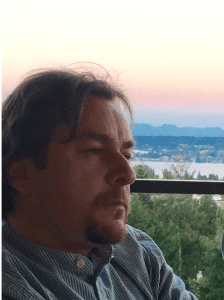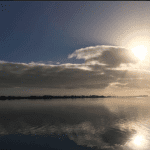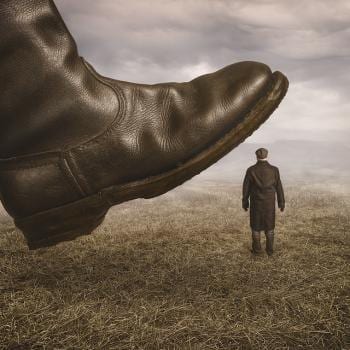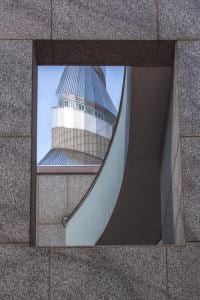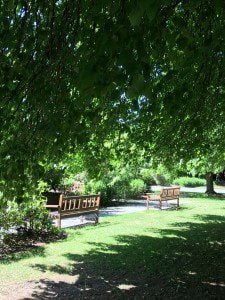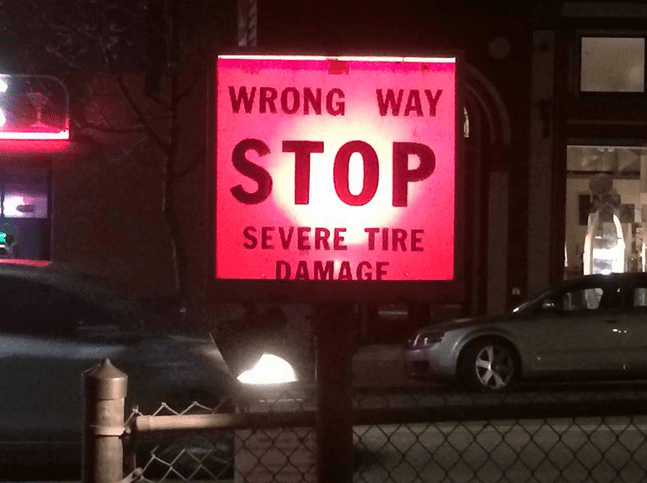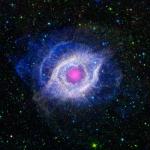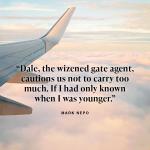Guest post by Nathan McCluskey. This talk was delivered at Sunstone Salt Lake City 2016, Friday 29th July on a panel that included with G.Campbell McNaughton (Scotland), Alison Haldon (England) and Gina Colvin (New Zealand) who each addressed the question of American Cultural Imperialism and ‘The American Church Through Other Eyes.” Nathan spoke about war and peace.
According to Nhlanhla Msibi in his book ‘The Delayed Revolution’ making reference to the relationship between Christianity and its success in Swaziland, he said …”the emergence of the Zionist church movement in 1914, which appeared more accommodating of traditional beliefs and practices, would give rise to close ties between Christians and the royal house”. On the other hand, inasmuch as any Church is not accommodating of local beliefs, it performs an imperialist function and will struggle to establish close ties with local power-holders or a significant presence within the general population.
Cultural imperialism in any form from whatever source creates some sort of resistance from the people upon which it is imposed – except for those among them that stand to gain from embracing it. The risk that comes from using a religious vehicle to transfer those cultural ideas into another culture is that the line between what is from God and what is from man becomes at first obfuscated and then as the flaws in it are exposed, it undermines the credibility and origin of that which is legitimately from God. It is with these thoughts in mind that I wish to address the topic before us with specific reference to the way war is seen in the Church in the different cultural contexts of NZ and the US. A good place to start with this is the keystone of our religion. After all, we can get nearer to God by abiding by its precepts than any other book.
The Book of Mormon is full of war. However, how this is interpreted by many American Mormons is quite different from the way it is interpreted by many Kiwi Mormons. For example, an American rendering of the Book of Mormon suggests that it teaches us to defend our families, freedom and religion with the use of military force, that we must guard against Gadianton-like terrorism through unity of thought and leader support and that God will help us to win wars if we are Christian. (I apologise to any non-Americans in the room who have already spotted the massive paradox in that last sentence). On the other hand, a standard Kiwi view would be that the Book of Mormon teaches that pacifism is a greater manifestation of faith than militarism, that where war is encountered it should be defensive and never aggressive and that temporal inequality in society leads to its ultimate demise. It’s as if Latter-day Saints on opposite sides of the Pacific are reading completely different holy books. One group sees it as the manifesto created by a twisted political alliance between Donald Rumsfeld, Kim Jong Il and Pope Urban II while the other sees it as the combined wisdom of Mahatma Ghandi, Senator Robert Byrd and Karl Marx. How did this happen?
Well, it wasn’t always the case. In 1852, when John Taylor published his book ‘The Government of God‘, he decried war as a manifestation that the devil has a hold over the hearts of the children of men and that nothing could be further from the desires of a Saint (I appreciate he wasn’t American). Almost a century later, however, in 1946, J Reuben Clark Jr (who was American) said in the October General Conference with reference to the use of atomic bombs on Japan:
“…and the worst of this tragedy is not that not only did the people of the United States not rise up in protest against this savagery, not only did it not shock us to read of this wholesale destruction of men, women, and children, and the cripples, but that it actually drew from the nation at large a general approval of this fiendish butchery. Thus we in America are now deliberately searching out and developing the most savage, murderous means of exterminating people’s that Satan can plant in our minds. We do it not only shamelessly, but with a boast. God will not forgive us for this.”
Then, something happened. Men who had fought in the war came back from the war and became Church leaders. People like Thomas S. Monson, Boyd K. Packer, L. Tom Perry and Paul H. Dunn, (although it remains unclear if he actually Dunn what he said he’d Dunn). Not only did these men frequently share war stories in General Conferences, they normalised and even popularised militarism, and always from a US perspective. This took the US Church and it’s US leadership into a space where following the events of 9/11, in October 2001, President Gordon B. Hinckley stood before General Conference asking Church members to support both the US President and his invasions of foreign sovereign states. I felt physically sick in my stomach as I confronted for the first time I could recall the possibility that in my lifetime, living prophets, while living, may not be prophets. Meanwhile, the Americans we were working with in Taiwan were experiencing the opposite. Their feelings of assurance that we were being led by the word of God were redoubled. The cultural lens through which the Prophet was viewing these events was engendering a response which seemed to me to be just a milder version of Senator Orrin Hatch’s:
“We’re going to find out who did this and we’re going after the bastards.”
In my mind, neither were responding in a way consistent with my understanding of the thinking that should be associated with a high priest after the order of the son of God, but to others, based on their very different cultural perspective, it was somehow completely consistent. As an interesting counterpoint which illustrates that this cultural difference is reflected in other Christian denominations, a SDA work colleague of mine who I spoke with last week reminded me of an incident that occurred in his church a few years ago. It involved a man named David Tipple who was SDA and owned a NZ business called ‘Gun City’ (yes, we do have guns in NZ and we do have shops that sell them, we just don’t give them to our police officers like you do in the US). Two men broke into his home and stole his quad-bike. As they were making off with it, he took out one of his guns and shot one of the thieves in the shoulder. Because it is unusual for people to shoot other people in NZ, it created a media frenzy. In making comment on his role in these events, David Tipple expressed his God-given right to use force to defend his property from malefactors. As a result of these comments, he was not only censured by the NZ SDA authorities, but excommunicated for being unwilling to rescind them. The authorities were very clear that Jesus Christ did not teach this and David’s message of violence was bringing the church into disrepute. Subsequently, David Tipple formed a substantial support group of, you guessed it, American SDAs who saw things the same way as good ole Dave. Just as I mentioned earlier the different interpretation and application of the Book of Mormon between NZ and the US, the SDAs were confronting a very different interpretation of biblical principles between NZ and the US. The US church favouring the Mosaic Old Testament while the NZ church reflected the light of the Christian New Testament.
This same story could easily have been played out in our church. The culture informed scriptural understanding so profoundly as to create a schism in the same church. Another example of this occurred when I was on my mission in Melbourne Australia from 1990-92. It was during this time that the US was involved in what most Americans refer to as the first Gulf war. My companion in late 1990, Elder Guy Larson from Ephraim, Utah, had a brother in the US Air Force, an American flag on the wall of our bedroom and played a song every morning on his tape deck which went something like this:
“I’m proud to be an American, where at least I know I’m free and I won’t forget the men who died who gave that right to me and I’ll proudly stand up next to you and defend her still today ‘cos there ain’t no doubt I love this land (love this land) God bless the USA”.
Then he would salute the flag. He was a true patriot even though he was a cheerleader who’d never been involved in the military himself. The problem was, he was in a flat with three other missionaries who were all Kiwis. He was always going to be on a hiding to nothing. We would match his singing with the NZ national anthem and then a haka at the end, but when we did the pukana, we would also salute. It was mockery. His retort would be “fools mock, but they shall mourn.” We would say something like “yes we shall, every morn.”
I guess one day it had all gotten a bit much for him and we were out tracting. On one door, a typical Aussie bloke started into him about how the US needed to keep their noses out of the Gulf state’s business. I agreed whole-heartedly and I could see his fair skin becoming increasingly red. It was even obvious through his short blonde hair that his whole head was becoming a bomb about to explode. He cut the discussion short and we exited the premises, me to go to the next house, him in the opposite direction. He was going back to the flat. “Where are you going?” He wouldn’t talk to me. I followed him back to the flat where he immediately got on the blower to the Mission President. I could hear him saying “President Newbold, Elder McCluskey is talking politics on his mission” and then recounting the evil I had done. It wasn’t long before I was summoned to the phone by a smug looking Elder Larson to answer for my crimes to my Mission President from Bountiful, Utah. This discussion went something like:
“Elder McCluskey, what have you been doing here?”.
“I have been building on common beliefs, President.”
It was then made clear to me in no uncertain terms that that particular missionary technique did not apply to political beliefs and I’d better stop forthwith or I’d be in more serious trouble. Once again though, what this taught me was that in regard to matters of international relations, I had more in common with an Aussie gentile than the Americans I was called by God to serve alongside in preaching the gospel of Jesus Christ. It was an uncomfortable realisation for an enthusiastic and zealous teenage missionary from little NZ. You see, I’d grown up in a country in which my cultural paradigm was that you don’t blow your own trumpet, the kumara does not sing of its own sweetness, you don’t get too big for your boots, pride becometh the fall, and if you are a poppy who gets too tall, you’ll be cut down to size. America was the antithesis of this so as I grew up in an American church in NZ, I inherently understood people’s reservations towards it.
When I was 13 years old, David Lange became the Prime Minister of New Zealand as the Fourth Labour Government swept to power over the debate to allow US nuclear ships to visit NZ. Since 1951, NZ had been in a strategic defence alliance with Australia and the US known as ANZUS. However, French nuclear testing on it’s South Pacific dependency, Muroroa Atoll, had increased NZ opposition to nuclear weapons to such an extent that we had sent protest naval vessels with cabinet ministers on board and people at home were wearing badges that said things like “You can’t hug children with nuclear arms.” So in 1984, NZ stood boldly and told the US that their naval vessels were no longer welcome in NZ unless we could inspect them for the presence of nuclear arms. This flew in the face of the American policy to neither confirm nor deny the existence of such weapons on any given vessel. NZ never really believed this would get us kicked out of ANZUS because Australia ‘n’ US without NZ would be ANUS and we were pretty sure the US didn’t want to be the butt of everyone’s jokes. David Lange became a national hero when he stood against Jerry Falwell, a well known American Baptist Televangelist, in the Oxford Union Debate the following year and told him to stand back because he could smell the uranium on his breath as a high profile American Christian defended weapons of mass destruction against a secular New Zealander who won the debate by convincingly arguing that they were morally indefensible.
NZ Mormons, like the rest of the country, got in behind our Prime Minister, not because we were told to by a prophet of God, but because it fit with our understanding of the gospel. After all, it is Lucifer who said that he would “buy up armies and navies who destroy and reign with blood and horror on this earth.” It all makes perfect sense to Kiwi Mormons until the President of our church tells us to support war and then the wheels start to fall off the handcart and it becomes much more difficult to pull. This in turn brings us into conflict with many American saints so that 18 months after his initial emphasis on supporting the US war effort, GBH said in the 2003 Annual General Conference that as Latter-day Saints, we find ourselves on both sides of a great debate making reference to the US-led invasion of Iraq. Gina and I had definitely experienced this as we worked alongside other Kiwi and American Mormons teaching English in Taiwan. There was a stark contrast between the Kiwi’s understanding of the motivation for what we saw as an illicit and unChristian war and the viewpoint of the Americans we shared pews with on Sunday. We now feel vindicated as more prophetic than the prophet himself as confidential White House papers released this year confirm what we were saying over a decade ago.
However, at the time, it created tension in our wee English-speaking branch as we vented our frustration at the ignorance of our BYU graduate colleagues and they their incredulity at our unwillingness to support the cause for ‘freedom’. For example, on one memorable home teaching visit to a lovely young American couple, I made the point that anyone who supports the invasion of Iraq is not worthy to partake of the sacrament. They didn’t say much which I took to indicate that they could see my point and it was a successful teaching moment. What I was soon to learn was that what Elder Larson had done to me on my mission was what American Mormons do when they don’t like what you are saying, they tell on you. Next Sunday, the Branch President had a chat with me about how I had been reported as teaching false doctrine and that I needed to keep my home teaching focussed on the words in the First Presidency message who had not said anything about war supporters abstaining from the sacrament, as it happened. It irked me. Questions flooded my mind. How is it that you can be put on probation for masturbation or reading a copy of Penthouse magazine, but not for supporting the slaughter of innocent people in order to secure access to their natural resources? Why couldn’t they just have had an adult conversation with me about their objection to my assertion? But the biggest question was am I more Kiwi than Christian or are they more American than Christian?
The clash of our culturally coloured religious expressions had called into question my very understanding of Christianity. This clash was probably exhibited for me most poignantly, however, on board the USS Missouri, arguably the most famous US battleship. It was mid-1991. I was in the third area of my mission, Hobart, Tasmania. The USS Missouri was en route back to the US from the campaign in the Gulf and it had stopped in Hobart. As missionaries, we were contacted by the Bishop of the USS Missouri Ward to see if we would be interested in a tour of the ship. I couldn’t believe there were enough Mormon sailors on board to have a ward. I was keen to have a look. He showed us around and told us about how the big guns at the front fire projectiles the weight of a VW Beetle and the Tomahawk cruise missiles could be targeted so precisely they would be out no more than the length of a tennis court over a 300 mile trajectory, but that it didn’t matter too much because the explosion would wipe out everything within a 100 metre radius anyway. Then he took us to the video room where he said as many crew as possible had crowded in to see the images relayed back by the ATV cameras following the first missiles sent into Baghdad and how much excitement there had been. Then he said:
“as we watched, a silence fell over everyone because we realised this wasn’t a simulation exercise. The images were clear and detailed. We saw people dying. We saw their bodies being blown into pieces.”
I cried then, but he didn’t. In his mind, he was doing a job. In my mind, he was a Bishop and that didn’t make sense. From that day a quarter of a century ago until this, that doesn’t make sense to me, but I bet it makes sense to him. One of the pressing issues facing the LDS church in the 21st century is not only its cultural relevance outside of the United States of America, but what that relevance is in terms of moral authority. Given that outside of Utah, the Church has no real legal or political authority, it can only succeed if it has moral relevance because it not only resonates with local cultures, but more importantly, has extracted itself from the bondage of its own cultural parochialism. Until it can do that, it’s peculiarity in a non-American context will become less and less admirable and more and more awkward so that it doesn’t matter how much it lowers the missionary age by, it won’t be an attractive product to truth seekers because they won’t be able to recognise the truth through the encakement of American accoutrements.
It is in the very best interests of The Church of Jesus Christ to abandon its 50 year penchant for American cultural imperialism in all of its facets and manifestations in the modern church. In particular, the rhetoric and practice from its leaders must reflect the belief that Christ is the prince of peace not war. It will then not suffer the risk associated with rejection from non-LDS when the US is internationally unpopular and resistance from within its own ranks due to suspicion that what is being peddled is cultural indoctrination rather than inspired discourse.
Thank you.

